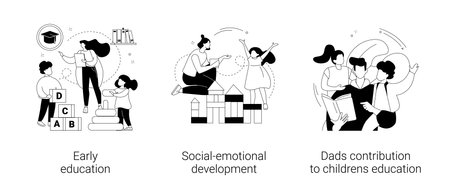Understanding Social Anxiety
Social anxiety is more than just feeling shy or nervous in certain situations. Its a real mental health challenge that can affect people of all ages and backgrounds across the United States. When someone has social anxiety, they may feel intense fear or worry about being judged, embarrassed, or rejected during social interactions. This can make everyday activities—like going to school, starting a new job, or even chatting with neighbors—feel overwhelming.
Common Symptoms of Social Anxiety
| Physical Symptoms | Emotional Symptoms | Behavioral Symptoms |
|---|---|---|
| Blushing Sweating Trembling Rapid heartbeat |
Fear of judgment Worrying about embarrassing yourself Feeling self-conscious |
Avoiding social events Staying quiet in groups Leaving places early |
How Social Anxiety Affects Daily Life in America
In American culture, there is often an emphasis on being outgoing, confident, and sociable. People are encouraged to speak up in class, network at work, and join community activities. For those with social anxiety, these expectations can feel especially difficult to meet.
Impact on Interactions and Relationships
- At School: Students may avoid raising their hand or joining group projects, which can affect learning and friendships.
- At Work: Employees might skip out on meetings or networking events, limiting career growth opportunities.
- With Friends and Family: Social gatherings like barbecues, birthday parties, or holiday dinners can be stressful, leading some to decline invitations or leave early.
The American Perspective
The fast-paced and social nature of many American communities means that social anxiety can sometimes be misunderstood as being unfriendly or uninterested. However, its important to recognize that those struggling with social anxiety often want to connect with others—they just find it much harder due to their symptoms.
2. Cognitive-Behavioral Techniques
Understanding Cognitive-Behavioral Therapy (CBT)
Cognitive-Behavioral Therapy, or CBT, is a proven approach often used in the United States to help people manage social anxiety. It focuses on changing negative thought patterns and behaviors that keep you feeling anxious in social situations. By learning new ways to think and act, you can build confidence and feel more comfortable around others.
Cognitive Restructuring: Changing Anxious Thoughts
Cognitive restructuring is about recognizing unhelpful thoughts and replacing them with more realistic ones. For example, if you think “Everyone will laugh at me if I say something wrong,” you can challenge this by asking yourself, “Is it really true?” or “What evidence do I have for this belief?” Over time, this helps reduce anxiety and builds a healthier mindset.
Common Unhelpful Thoughts vs. Helpful Reframes
| Unhelpful Thought | Helpful Reframe |
|---|---|
| I always embarrass myself in groups. | Everyone makes mistakes sometimes; it’s normal to feel nervous. |
| No one wants to talk to me. | Some people may be shy too; starting small conversations can help both of us. |
| If I blush, everyone will notice. | Blushing is natural, and most people don’t pay much attention to it. |
Gradual Exposure: Facing Social Fears Step by Step
Gradual exposure means facing your fears in small, manageable steps instead of all at once. This helps your brain learn that social situations aren’t as scary as they seem. Start with something less intimidating—like saying hello to a neighbor—and work up to more challenging situations over time, like joining a group discussion or attending a party.
Sample Gradual Exposure Plan
| Step | Activity Example |
|---|---|
| 1 | Make eye contact and smile at someone you know. |
| 2 | Say hello or good morning to a coworker or classmate. |
| 3 | Ask someone a simple question, like directions or the time. |
| 4 | Share your opinion in a small group conversation. |
| 5 | Attend a social event or join a club meeting. |
Practicing Regularly for Best Results
The key to success with cognitive-behavioral techniques is practice. Try using these strategies every day, even if it feels uncomfortable at first. Over time, you’ll notice improvements in your confidence and social skills. Remember, progress might be slow at times, but every step forward counts!

3. Building Social Skills
Practical Exercises for Everyday Social Success
Improving your social skills can make a big difference when dealing with social anxiety. In the U.S., daily interactions often include chatting with coworkers, greeting neighbors, or joining group activities. Practicing key skills like communication, active listening, and assertiveness will help you feel more confident in these settings.
Exercise 1: Communication Practice
Start by practicing small talk. This is common in American culture and can happen at the grocery store, work, or even while waiting in line. Use the following table to try out simple conversation starters:
| Situation | Starter Phrase |
|---|---|
| Coworker at the coffee machine | “Hows your morning going?” |
| Neighbor outside | “Nice weather were having!” |
| Waiting in line | “This place sure is busy today.” |
Try using these phrases once a day. The goal is not a long conversation but to get comfortable initiating contact.
Exercise 2: Active Listening Skills
Active listening shows you care about what others are saying—a valued skill in American culture. Follow these steps to practice:
- Make eye contact.
- Nod or say short responses: “I see,” “That makes sense,” or “Really?”
- Repeat back: Summarize what they said, e.g., “So youre saying you had a busy weekend?”
You can practice this during family meals or with friends over a cup of coffee.
Exercise 3: Assertiveness Training
Assertiveness means expressing your thoughts and needs respectfully. Here are some examples tailored for typical American situations:
| Situation | Assertive Response Example |
|---|---|
| A friend invites you out but you’re tired | “Thanks for inviting me! I’m really tired tonight, so I’ll pass this time.” |
| A coworker asks for help when you’re busy | “I’d love to help, but I have a deadline right now. Can we talk later?” |
| A family member interrupts you during a story | “I’d like to finish my thought—can I share first?” |
The more you practice these responses, the easier it becomes to express yourself clearly and confidently.
4. Confidence-Building Habits
Simple Lifestyle Changes for Social Confidence
Building confidence and improving social skills takes time, but small daily habits can make a big difference. If you struggle with social anxiety, practicing positive routines can help boost your self-esteem and make social situations feel less overwhelming. Here are some everyday tips and habits you can start today:
Self-Care Matters
Taking care of your body and mind is the foundation of confidence. This doesn’t mean fancy spa days—it’s about making sure your basic needs are met. When you feel good physically, it’s easier to feel good mentally too.
| Self-Care Tip | How It Helps |
|---|---|
| Getting enough sleep | Makes you more alert and less stressed in social settings |
| Eating regular, healthy meals | Keeps your energy up throughout the day |
| Staying active (even light walks) | Boosts mood and reduces anxiety naturally |
| Taking breaks when needed | Prevents feeling overwhelmed or burned out |
The Power of Mindfulness
Mindfulness means paying attention to the present moment without judgment. By focusing on what’s happening right now, you can stop your mind from racing with worries about what others think or what might go wrong.
- Breathe deeply: Take a few slow breaths when you start to feel anxious.
- Notice your senses: What do you see, hear, or feel around you?
- Use grounding techniques: Try the 5-4-3-2-1 method—name five things you see, four things you hear, three things you touch, two things you smell, and one thing you taste.
Practice Positive Self-Talk
The way you talk to yourself matters. If you always put yourself down or expect the worst, it’s tough to feel confident. Practice swapping out negative thoughts for encouraging ones.
| Negative Thought | Positive Alternative |
|---|---|
| I always mess up in groups. | I’m learning how to be more comfortable with others. |
| No one wants to talk to me. | I have something valuable to share. |
| I’m too awkward. | I can improve my social skills with practice. |
Create Small Social Goals
You don’t need to become super outgoing overnight. Start with tiny goals, like saying hello to a neighbor or sending a text to a friend. Each small win helps build your confidence for bigger challenges later on.
Lifestyle Checklist for Building Confidence:
- Aim for 7–9 hours of sleep each night.
- Eat at regular times and include fruits or veggies daily.
- Add short walks or stretches into your routine.
- Try a simple mindfulness exercise once a day.
- Catch negative self-talk and rephrase it positively.
- Set one small social goal per week (e.g., greet someone new).
These habits may seem simple, but over time they can make social situations feel less intimidating. Remember, building confidence is a journey—every step forward counts!
5. Seeking Support and Community Resources
Building confidence and improving social skills can feel overwhelming when facing social anxiety, but you don’t have to do it alone. In the U.S., there are many resources and support systems designed to help you on your journey.
The Importance of Support Systems
Having a network of people who understand your struggles can make a big difference. Support systems offer encouragement, guidance, and a sense of belonging. These can include family, friends, professionals, or peers with similar experiences.
Counseling and Professional Help
Speaking with a counselor or therapist is one of the most effective ways to address social anxiety in the United States. Licensed mental health professionals use evidence-based approaches like Cognitive Behavioral Therapy (CBT) to help individuals identify negative thought patterns and develop coping strategies. Many therapists now offer both in-person and virtual sessions, making help more accessible than ever.
Support Groups
Joining a support group connects you with others who understand what you’re going through. These groups are often led by trained facilitators and provide a safe space to share experiences, practice social skills, and learn from each other. Popular organizations like the Anxiety and Depression Association of America (ADAA) and local community centers frequently host these groups both online and face-to-face.
Campus and Community Resources
If you’re a student or part of a community organization, take advantage of the resources around you. Many U.S. campuses have counseling centers, peer mentorship programs, and wellness workshops designed specifically for students dealing with anxiety. Local libraries, recreation centers, and faith-based organizations may also offer free or low-cost classes and events focused on social skills development.
Types of Support Available in the U.S.
| Resource Type | Description | How to Access |
|---|---|---|
| Counseling Services | Professional therapy for managing anxiety | Private practices, university counseling centers, online platforms (like BetterHelp) |
| Support Groups | Peer-led or professional-led groups for shared experiences | ADAA website, Meetup.com, local community boards |
| Campus Resources | Mental health services, workshops, peer support programs | Student health centers, campus websites |
| Community Programs | Classes, social clubs, volunteer opportunities for skill-building | Community centers, libraries, non-profit organizations |
| Hotlines & Online Chat Services | Crisis support and immediate assistance | National Alliance on Mental Illness (NAMI), 988 Suicide & Crisis Lifeline |
No matter where you are in your journey with social anxiety, reaching out for help is a sign of strength. Taking the first step toward connecting with others can open doors to new opportunities for growth and self-confidence.


